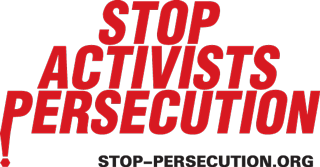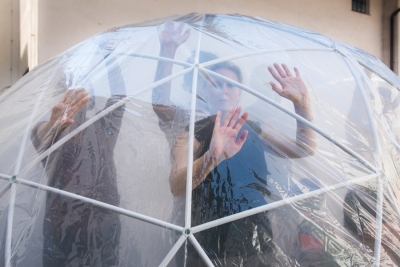"In a way, we are used to hearing about political persecutions, ethnic or religious motivated hatred, but attacking defenders of the environment has been increasing recently," Martin Skalsky of the Czech NGO Arnika explains. “Speaking about the issue publicly is an essential step in an effort to keep our societies open and democratic. It is especially important when facing serious environmental challenges,” he adds, reminding that last year 200 defenders of the environment reached across the globe (3), thousands were abducted, beaten, or threatened.
The stop-persecution.org focuses on Europe and the former Soviet Union, where the situation is mostly not lethal, but nevertheless disturbing. According to Marina Dubina of Ecohome, her homeland of Belarus is considered to be the last dictatorship in Europe. "But there is a number of countries where citizens live under even harsher conditions," she believes. "Speaking about the pollution of the environment, plundering the natural resources, corruption, or enforcement of the interests of local communities is really dangerous there and we want to help those stories to be heard," Dubina proclaims.
International agreement partially ignored
All governments in the watched region, except Russia, have signed the international Aarhus Convention "on environmental democracy," and thus, they have to provide for public access to environmental information, participation in decision-making, and right for independent judicial review. But the reality is often far from that.
Various forms of oppression can be witnessed in those countries. Blackmailing, threats, dismissal, or expulsion from jobs or studies, administrative and criminal prosecution, psychological pressure or even physical violence, detentions and arrests.
Bosnia, Ukraine and Belarus
The mayor of the Ukrainian village Yasnozirya gets beaten up in his office, the special police units physically attack the protesters of Kruscica, an anti-nuclear activist gets restrained and imprisoned multiple times in Bosnia-Herzegovina and in Belarus. These are the first three cases already delivered and published.
From now on, everyone can submit information on their case through the online form. The more details whistle-blowers provide, the better. All given information will be absolutely secret, and may be published anonymously. "The privacy protection of all victims and every whistle-blower is our priority," Skalsky ensures.
Photos related to published articles are available here on the website.
Further reading:
[1] Arnika is a Czech Republic based non-governmental organization focused on nature conservation, toxicology and waste, and public participation in decision-making on environmental issues. Because the environment does not respect the borders, we cooperate with many partners all around the globe. Read more
Ecohome is a Belarusian non-governmental organization focusing on enforcing democracy and the idea of sustainable development, also to protect the rights of citizens to a healthy environment and promote an ecological way of life. Read more
[2] The Aarhus Convention parties meet every three years for the implementation and progress of the environmental democracy in the region. The 6th Meeting of the Parties took place in Budva, Montenegro, from 11 to 15 September, 2017. Read more
[3] An annual report published by international human rights NGO, Global Witness has named the 2016 “the deadliest year in record” regarding the activists killing and received huge media attention worldwide. Full report


